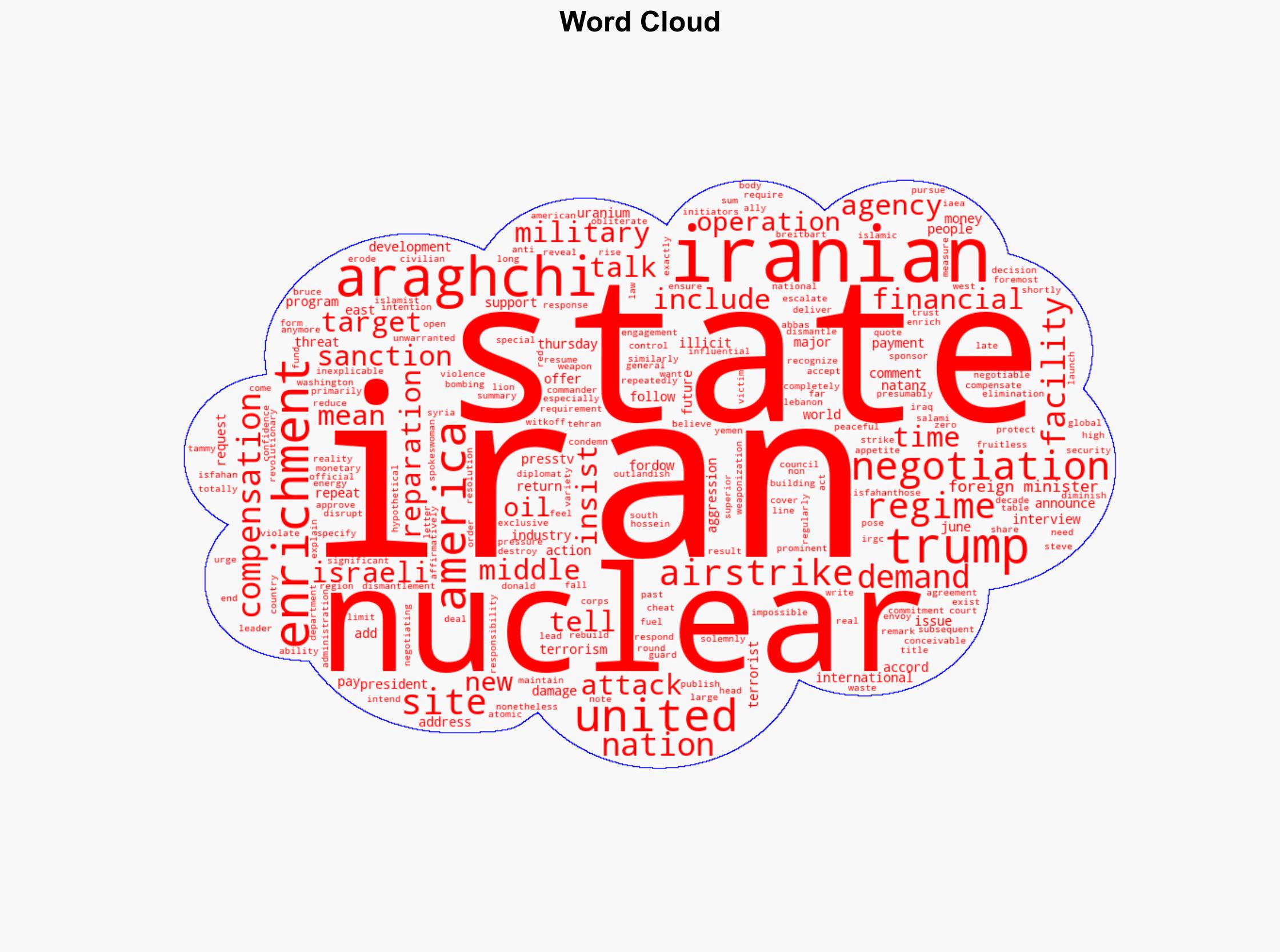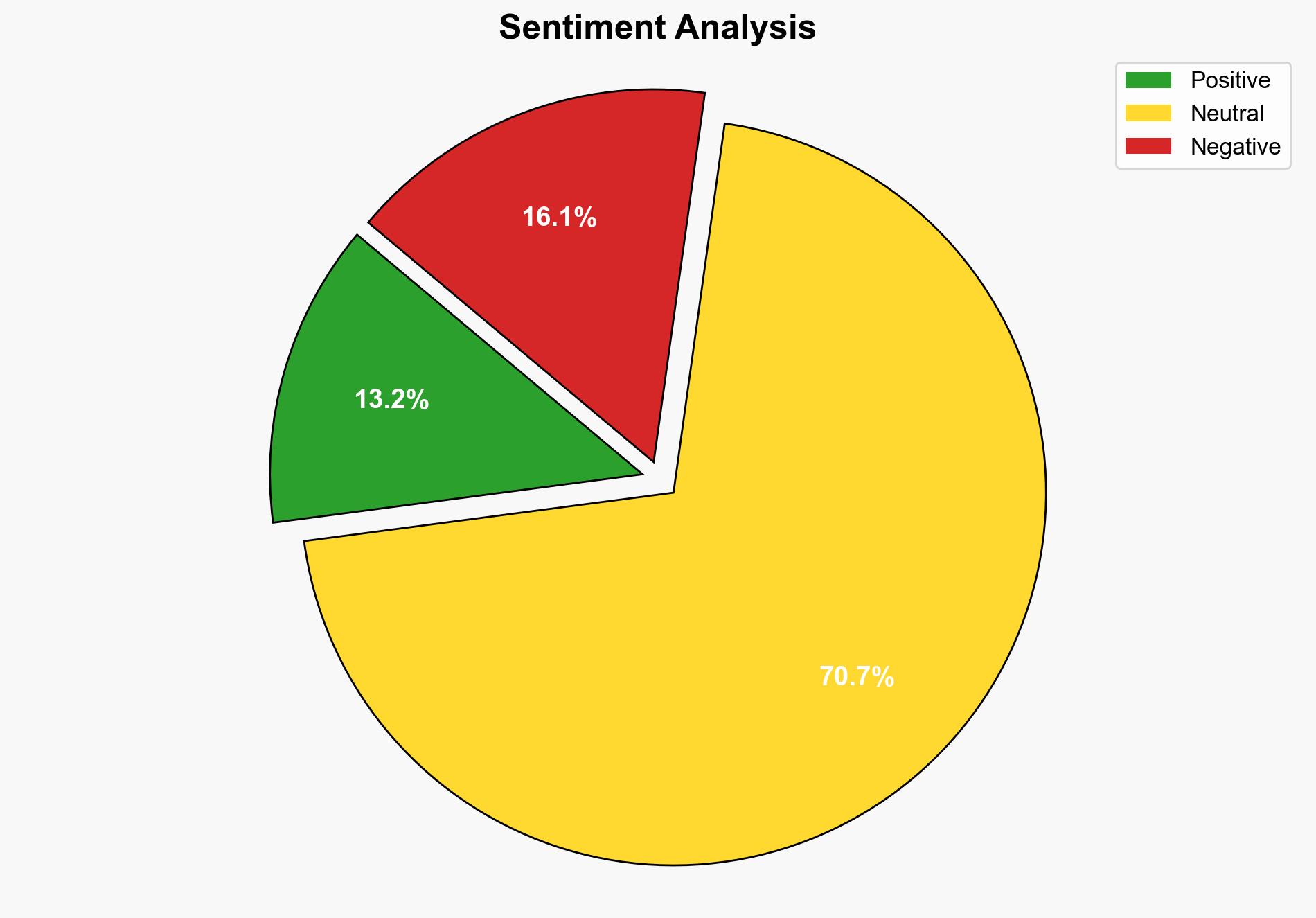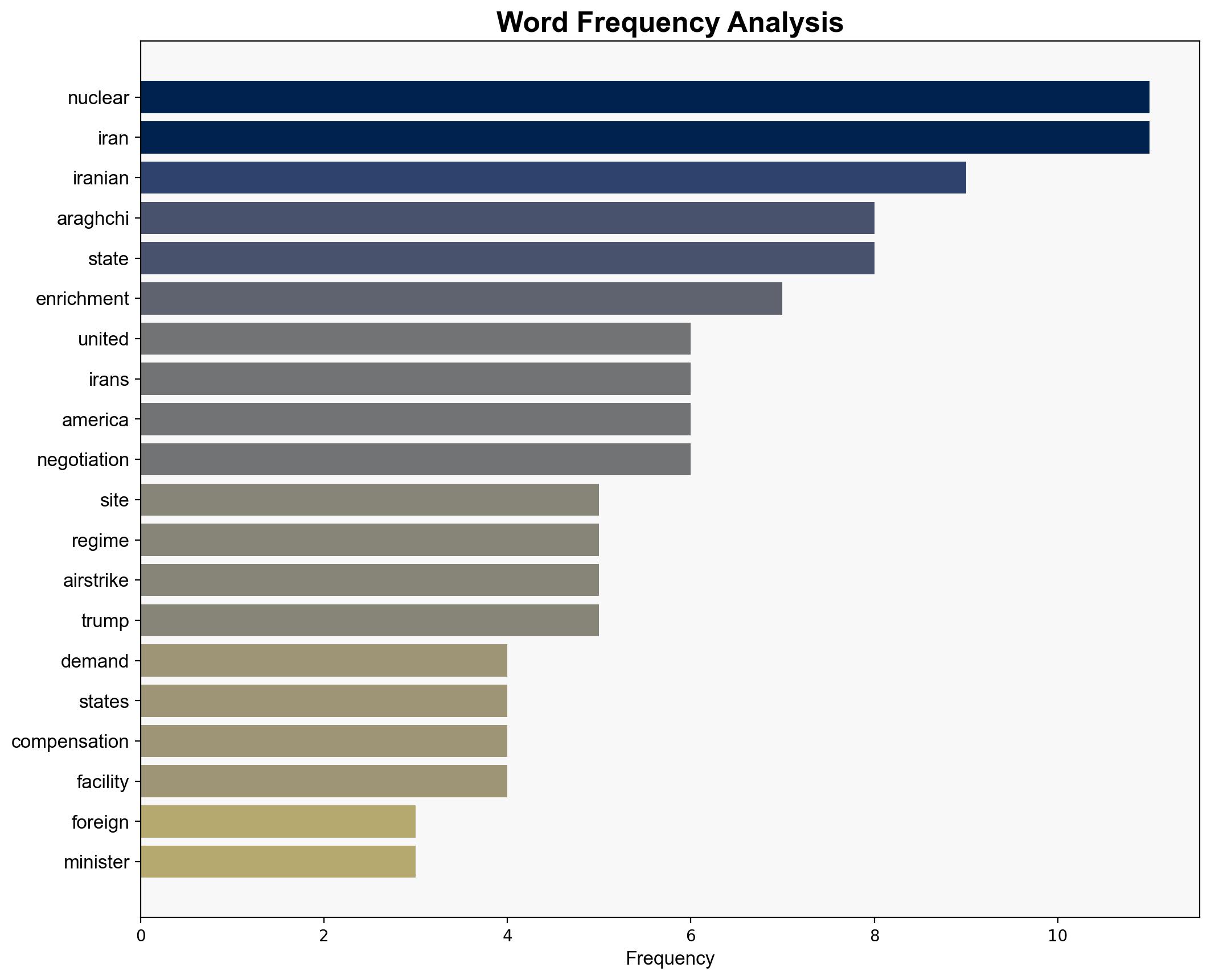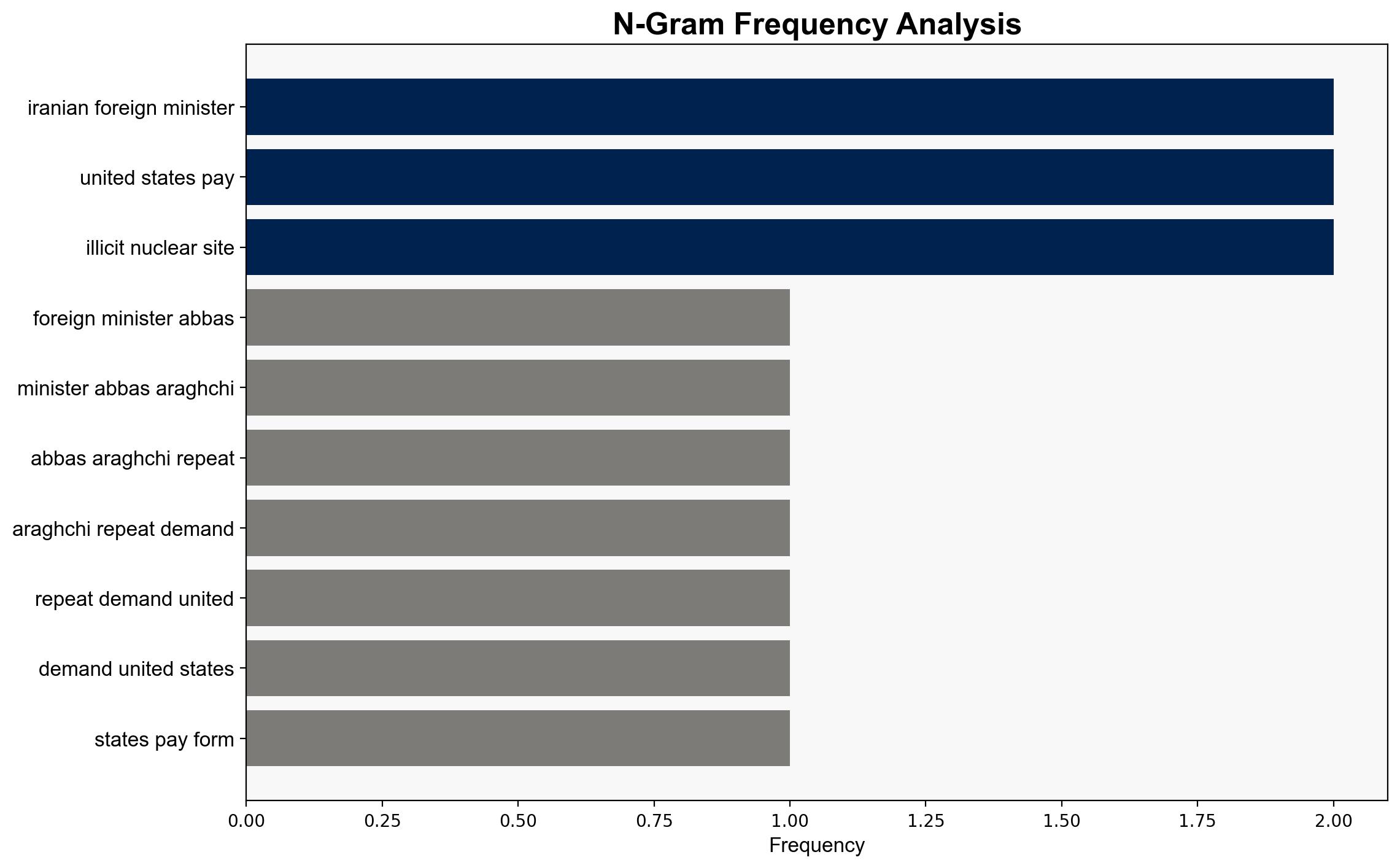Moneygrab Iran Wants US to Pay ‘Compensation’ for Future Talks – Breitbart News
Published on: 2025-07-31
Intelligence Report: Moneygrab Iran Wants US to Pay ‘Compensation’ for Future Talks – Breitbart News
1. BLUF (Bottom Line Up Front)
The most supported hypothesis suggests that Iran’s demand for compensation is a strategic maneuver to gain leverage in future negotiations with the United States. This analysis is based on structured analytic techniques, including Analysis of Competing Hypotheses (ACH) and Cross-Impact Simulation. Confidence level: Moderate. Recommended action: The U.S. should prepare for negotiations by assessing Iran’s economic vulnerabilities and potential diplomatic incentives that could offset the demand for compensation.
2. Competing Hypotheses
1. **Strategic Leverage Hypothesis**: Iran’s demand for compensation is a calculated strategy to strengthen its bargaining position in future negotiations with the U.S. By framing the compensation as a prerequisite, Iran aims to extract concessions or ensure more favorable terms.
2. **Domestic Political Posturing Hypothesis**: The compensation demand is primarily for domestic consumption, aimed at bolstering the regime’s image internally by demonstrating a strong stance against perceived U.S. aggression. This could be a tactic to consolidate internal support amidst economic challenges.
3. Key Assumptions and Red Flags
– **Assumptions**: The Strategic Leverage Hypothesis assumes Iran is willing to negotiate and sees value in future talks, while the Domestic Political Posturing Hypothesis assumes internal pressures are significant enough to drive foreign policy rhetoric.
– **Red Flags**: The lack of specificity in the compensation demand raises questions about Iran’s true intentions. Additionally, the absence of clear communication on the part of Iran regarding the exact amount or form of compensation suggests potential deception.
4. Implications and Strategic Risks
– **Geopolitical Risks**: Escalation of tensions could lead to increased regional instability, affecting global oil markets and international security.
– **Economic Risks**: Prolonged standoff may exacerbate Iran’s economic challenges, potentially leading to increased domestic unrest.
– **Diplomatic Risks**: Failure to address the compensation demand could stall diplomatic efforts, impacting non-proliferation goals and regional alliances.
5. Recommendations and Outlook
- Engage in backchannel communications to clarify Iran’s compensation demands and explore alternative incentives.
- Prepare a multilateral diplomatic approach involving key regional and global stakeholders to pressure Iran towards constructive dialogue.
- Scenario Projections:
- Best Case: Iran drops compensation demand in exchange for economic incentives, leading to resumed negotiations.
- Worst Case: Breakdown in talks leads to increased sanctions and regional military tensions.
- Most Likely: Protracted negotiations with incremental progress, requiring sustained diplomatic engagement.
6. Key Individuals and Entities
– Abbas Araghchi
– Donald Trump
– Steve Witkoff
7. Thematic Tags
national security threats, cybersecurity, counter-terrorism, regional focus





